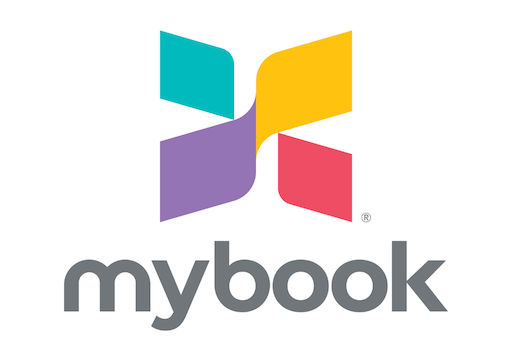Tell Digital Marketing Requirements Effortlessly: Avoid Miscommunication
When it comes to telling digital marketing requirements as a client, clarity is key. A successful marketing campaign hinges not only on your vision but also on how well that vision is articulated. Miscommunication can lead to wasted time, resources, and often, frustration on both sides. Whether you’re looking to work with a digital marketing agency for the first time, or you’ve been in the game for years, understanding how to convey your needs can transform the process.
Understanding the Scope of Your Project
Before you even sit down with a marketing team, it’s helpful to outline the specifics of your project. What are you hoping to achieve? Are you looking for increased brand awareness, lead generation, or maybe a complete overhaul of your online presence? It’s tempting to jump straight into the exciting details—like social media campaigns or flashy ads—but taking the time to clarify your goals can save you from major hiccups later on.
For example, I once worked with a small bakery wanting to ramp up their online sales. They envisioned a complex social media strategy with multiple platforms. However, after an initial meeting, it became clear that they hadn’t considered their ideal customer profiles, leading us to adjust our focus on a single, impactful platform instead. Clarity can often lead to simplicity, and sometimes less is indeed more.
Create a Detailed Brief
When you tell digital marketing requirements as a client, a detailed brief can act like your guiding star. This brief should encompass vital aspects of your project, including:
– Target Audience: Who are you trying to reach? Be as specific as possible. Remember, demographics are just the beginning; think about psychographics, behavioral traits, and pain points.
– Budget: Being upfront about your budget creates a level of transparency that can help shape feasible strategies.
– Timeline: Do you have any hard deadlines? Seasonality factors often play an important role in digital marketing plans.
– Brand Voice and Values: A clear picture of who your brand is can help those crafting your campaign create messaging that resonates with your audience. Are you casual and fun, or are you more serious and professional?
By offering a document that outlines all these elements, you not only clarify your own thoughts but also provide your marketing team with a robust foundation to work from.
Foster Open Communication
One critical aspect of any working relationship, especially in digital marketing, is communication. The digital landscape evolves quickly; what works today might not work tomorrow. Holding regular check-ins can help keep your project on track.
After my campaign with the bakery started rolling out, we scheduled bi-weekly check-ins to assess performance metrics. This allowed us to pivot swiftly and make necessary adjustments. If an ad wasn’t performing well, we could tweak it together—ensuring that everyone was on the same page and preventing misunderstandings.
Collaborate on Creative Ideas
Creativity often sparks during collaboration. Encourage your marketing team to share ideas and invite your own thoughts into the mix. Brainstorming sessions can yield some of the most innovative strategies.
For instance, in a recent project with a local fitness studio, I mentioned a partnership with local influencers. The marketing team expanded on this concept and created a vibrant social media challenge that not only engaged users but drove membership sign-ups. The best ideas often come from different perspectives, so don’t shy away from sharing yours!
Be Open to Feedback
While you have a clear idea of your requirements, remain flexible to suggestions from your marketing team. They have a wealth of experience and might see opportunities or challenges that you don’t. Letting go of some control may be hard, but an open mind can lead to enhanced outcomes.
I remember a client who initially rejected an idea focused on user-generated content, believing it might look unprofessional. However, after some persuasion, we implemented a trial period, and it turned into one of their most successful campaigns.
Wrapping Up
Successfully telling digital marketing requirements as a client is less about being a taskmaster and more about being a collaborative partner. By understanding your goals, creating a detailed brief, fostering communication, collaborating on ideas, and being open to feedback, you can not only avoid miscommunication but also enhance the overall effectiveness of your marketing efforts.
After all, good marketing isn’t just about what you want; it’s about co-creating an experience that resonates with your audience.
FAQs
1. How detailed should my digital marketing brief be?
Aim for as much detail as necessary, covering aspects like your target audience, budget, and timelines. The more specifics you provide, the better your marketing team can tailor their strategies to fit your needs.
2. How often should I communicate with my marketing team?
Regular check-ins are beneficial. Bi-weekly or monthly meetings allow you to assess progress, address issues, and make any necessary adjustments without falling off track.
3. What if I disagree with my marketing team’s suggestions?
It’s essential to maintain an open dialogue. Express your concerns, but be open to their expertise. Consider their insights and the possibility that their experience may uncover new opportunities you hadn’t considered.
Related Posts
Switch Lead Gen Expert: Effortless Steps for Success
In todays competitive landscape, becoming a switch lead gen expert can transform your approach to business growth. With a focus on building relationships and understanding your audience, youll discover...
Switch Instagram Consultant: Effortless Guide to Success
Are you struggling to make an impact on Instagram? A switch to an Instagram consultant could be your key to effortless success, guiding you through the ever-changing social media landscape and helping your...












